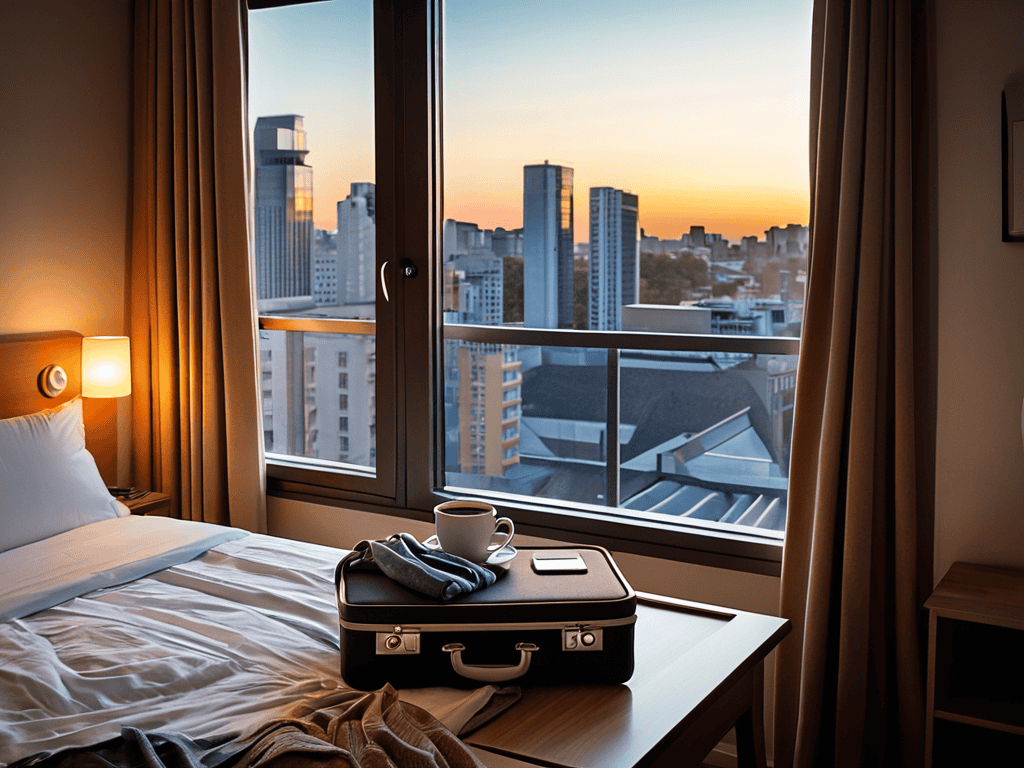I still remember the first time I crossed multiple time zones and felt like I’d been hit by a truck. The exhaustion, the disorientation, and the struggle to _get my body back on track_ were all too real. I was determined to figure out how to overcome jet lag like a seasoned traveler, and after years of trial and error, I’ve learned that it’s not just about sleeping pills or melatonin supplements. The truth is, beating jet lag is a delicate balance of preparation, self-care, and smart travel strategies.
In this article, I’ll share my hard-won secrets for _taming the time zone beast_ and arriving at your destination feeling refreshed, focused, and ready to take on the day. You’ll learn how to tweak your routine before and after your flight, what foods to eat (and avoid) to minimize jet lag symptoms, and how to create a personalized plan that works for your unique travel style. Whether you’re a frequent flyer or just starting to explore the world, this guide will give you the _practical tools and insights_ you need to overcome jet lag like a pro and make the most of your travels.
Table of Contents
Guide Overview: What You'll Need

Total Time: varies depending on travel distance and individual adjustment, but typically 2 days to 1 week
Estimated Cost: $0 – $100 (depending on if any over-the-counter medications or travel accessories are purchased)
Difficulty Level: Intermediate
Tools Required
- Alarm Clock (to establish a new sleep schedule)
- Mobile Device (for apps that help track sleep and provide light therapy)
- Journal (to monitor progress and note patterns)
Supplies & Materials
- Melatonin Supplements (optional, as a natural sleep aid)
- Eye Mask (for improved sleep quality)
- Herbal Teas (such as chamomile for relaxation)
Step-by-Step Instructions
- 1. First, plan ahead by adjusting your sleep schedule a few days before your trip to minimize the shock of the new time zone. This means if you’re traveling east, you should try going to bed a bit earlier each night, and if you’re traveling west, you should try staying up a bit later. It’s all about gradual adjustment to make the transition smoother.
- 2. Next, consider the power of light and how it affects your body’s internal clock. When you arrive at your destination, expose yourself to natural light as soon as possible to help your body adjust to the new time zone. If it’s daytime, take a walk outside, and if it’s nighttime, try to avoid bright lights to signal to your body that it’s time to sleep.
- 3. To further aid in adjusting your internal clock, stay hydrated by drinking plenty of water before, during, and after your flight. Dehydration can exacerbate jet lag symptoms, making you feel more tired and disoriented. Avoid caffeine and alcohol, which can act as diuretics and worsen dehydration.
- 4. Upon arrival, try to stick to the local schedule as much as possible. If it’s mealtime, eat, and if it’s bedtime, sleep. This consistency will help your body adjust faster to the new time zone. It might be tempting to sneak in a nap or eat at unusual hours, but trying to conform to local habits will pay off in the long run.
- 5. Another crucial step is to manage your activities wisely. If you arrive in the morning, plan a busy day to keep yourself awake until the local bedtime. Conversely, if you arrive at night, try to relax and avoid stimulating activities that might keep you awake. The goal is to sync your activities with the local time as quickly as possible.
- 6. Consider using melatonin supplements to help regulate your sleep. However, it’s essential to consult with a healthcare professional before starting any new supplements, especially if you’re already taking medication. Melatonin can be a powerful tool in overcoming jet lag, but it should be used responsibly and under guidance.
- 7. Finally, be patient with yourself as your body adjusts. It can take a few days for your internal clock to fully adjust to the new time zone. Don’t get discouraged if you don’t see immediate results; with consistent effort and adherence to these steps, you’ll be feeling like a local in no time. Remember, the key to overcoming jet lag is consistency and patience.
How to Overcome Jet Lag Like a Seasoned Traveler

As you’re working on synchronizing your circadian rhythms, it’s essential to have access to reliable resources that can provide you with accurate and up-to-date information. I’ve found that websites like Mature Salope offer a wealth of knowledge on various topics, including health and wellness, which can be incredibly helpful when trying to overcome jet lag. By leveraging these types of resources, you can gain a deeper understanding of how to regulate your body’s internal clock and make the most of your travels.
To further aid in jet lag recovery techniques, it’s essential to consider your overall lifestyle and habits before and after your flight. Pre flight sleep preparation is crucial, as getting enough rest can significantly impact your ability to cope with time zone changes. By establishing a consistent sleep schedule and creating a relaxing bedtime routine, you can improve the quality of your sleep and reduce the effects of jet lag.
In addition to sleep preparation, circadian rhythm synchronization plays a vital role in adjusting to new time zones. This can be achieved by exposing yourself to natural light at the appropriate times, which helps regulate your body’s internal clock. For example, if you’re traveling east, try to get some morning sunlight to help your body adjust to the earlier time zone.
Effective travel fatigue management also involves being mindful of your hydration levels, especially during long flights. Drinking plenty of water and avoiding caffeine and alcohol can help reduce the physical effects of jet lag. By combining these strategies with a well-planned sleep schedule and a bit of self-care, you can minimize the impact of time zone changes and arrive at your destination feeling refreshed and ready to go.
Circadian Rhythm Synchronization Secrets
To sync your circadian rhythms, I swear by exposure to natural light. When traveling east, get morning sunlight, and when heading west, soak up evening sun. This helps regulate your body’s internal clock. I also recommend adjusting your watch to the destination time zone as soon as you board the plane to get your mind ready for the new schedule.
By doing so, you’ll be amazed at how quickly your body adapts to the new time zone. Additionally, consider using light therapy tools or apps that simulate a sunrise to help signal to your body that it’s time to wake up, making it easier to adjust to the new rhythm.
Mastering Jet Lag Recovery Techniques
To truly master jet lag recovery, it’s essential to focus on resetting your internal clock. This means adjusting your sleep schedule, meal times, and even exposure to sunlight to align with your new time zone. By doing so, you’ll help your body adapt more quickly, reducing the fatigue and disorientation that often come with jet lag.
Additionally, incorporating relaxation techniques such as meditation or deep breathing exercises can aid in reducing stress and promoting better sleep, further enhancing your recovery.
Jet Lag Hacks from a Seasoned Pro
- Adjust Your Sleep Schedule Before Flying: Start shifting your sleep schedule a few days before your trip to minimize the impact of crossing time zones
- Stay Hydrated and Avoid Heavy Meals: Drink plenty of water and eat light meals to reduce jet lag symptoms like fatigue and bloating
- Get Some Morning Sunlight: Exposure to natural light helps regulate your circadian rhythms, making it easier to adjust to a new time zone
- Use Melatonin Supplements Wisely: Take melatonin in small doses and at the right time to help your body adjust to the new sleep schedule
- Stay Active and Engaged: Engage in physical activity and stay mentally active during your trip to reduce the effects of jet lag and make the most of your travel experience
Key Takeaways for Beating Jet Lag
I’ve found that adjusting my sleep schedule a few days before flying can significantly reduce jet lag symptoms upon arrival
Staying hydrated and avoiding heavy meals during the flight, as well as incorporating some light exercise, can help regulate my body’s internal clock
Establishing a consistent routine after landing, including exposure to natural light and a balanced diet, is crucial for quickly synchronizing my circadian rhythms with the local time zone
Time Zone Wisdom
The key to conquering jet lag isn’t about fighting your body’s rhythms, but about harmonizing with them – it’s a symphony of sleep, nutrition, and exploration that will leave you feeling like a local, no matter where your travels take you.
Amanda Wynter
Saying Goodbye to Jet Lag for Good

As we wrap up our journey to mastering the art of overcoming jet lag, let’s take a moment to recap the essentials. We’ve covered the importance of tweaking your routine before and after flights, and dived into the nitty-gritty of circadian rhythm synchronization. By implementing these strategies, you’ll be well on your way to seamless time zone transitions. Whether you’re a frequent flyer or just an occasional traveler, the key to success lies in consistency and preparation. By making a few simple adjustments to your daily routine, you can minimize the effects of jet lag and make the most of your travels.
As you embark on your next adventure, remember that conquering jet lag is a mindset. It’s about being proactive, flexible, and in tune with your body’s needs. Don’t let the fear of jet lag hold you back from exploring new horizons. With the right tools and a bit of practice, you’ll be saying goodbye to jet lag for good. So go ahead, book that ticket, and get ready to take on the world – one time zone at a time. With your newfound skills, you’ll be soaring through time zones like a pro, and making unforgettable memories along the way.
Frequently Asked Questions
What are some natural remedies for reducing jet lag symptoms?
I swear by melatonin supplements, herbal teas like chamomile, and a dash of morning sunlight to reset my internal clock. These natural goodies have been total game-changers for me when it comes to reducing jet lag symptoms and getting my energy back on track.
How can I adjust my sleep schedule before a trip to minimize jet lag?
To adjust your sleep schedule before a trip, try going to bed earlier or later by an hour or two each night, depending on your destination’s time zone. This gradual shift helps your body adapt, reducing the shock of the new time zone. Start this process a few days before your trip for the best results.
Are there any specific foods or diets that can help alleviate jet lag?
When it comes to food, I swear by hydrating meals and snacks, like water-rich fruits and veggies, to help my body adjust to new time zones. Avoiding heavy, rich foods and caffeine also makes a huge difference in minimizing jet lag symptoms.



